
 Flash News
Flash News
Korça/ 40-year-old man jumps from fifth floor balcony, in critical condition
Croatia restores compulsory military service
Illegal constructions in Theth, Manja demands disciplinary proceedings against prosecutor Elsa Gjeli
Details from the murder of Renis Dobra, the perpetrators came with 2 Range Rover cars from Rrëshen
The Supreme Court left him in prison, Meta addresses the 'Constitution'

In order to become a member state of the Organization for Security and Cooperation in Europe (OSCE), the agreement of all participating states is needed.
The largest regional security organization in the world currently has 57 member countries, spanning three continents: Europe, North America and Asia.
Among them are the states of the Western Balkans: Albania, Montenegro, Serbia, Bosnia and Herzegovina, North Macedonia, but not Kosovo.
Serbia does not recognize Kosovo's independence - declared in 2008 - and opposes its participation in regional and international organizations.
Moreover, it also has the support of Russia, which is also a member of the OSCE.
Among the ranks of this organization are Greece, Cyprus, Romania, Slovakia and Spain - the five countries of the European Union that do not recognize Kosovo - as well as other non-recognizing countries.
Radio Free Europe asked the Ministry of Foreign Affairs and Diaspora in Kosovo if it plans to apply for membership in the OSCE and where it sees the main obstacle in this process, but did not receive an answer.
Similarly, the OSCE mission in Kosovo did not respond to REL's request for comment on this topic, although it confirmed receiving questions.
The OSCE Permanent Council decided to establish the OSCE Mission in Kosovo in July 1999 - a few weeks after the end of the war in Kosovo.
The mission was given a leading role in issues related to institution building, democracy and human rights.
It is the largest field mission of the OSCE, while its mandate is defined in Resolution 1244 of the Security Council of the United Nations, as well as in the decision number 305 of the Permanent Council of the OSCE.
The mission currently has five regional centers - in Pristina, Prizren, Pejë, Mitrovica and Gjilan.
His website states that he is particularly engaged in protecting the rights of communities, protecting cultural and religious heritage, monitoring the judiciary, media freedom and development, promoting anti-discrimination mechanisms, improving youth participation in political and public life and others.
The OSCE mission also cooperates and supports the Central Election Commission and the Electoral Panel for Complaints and Submissions, with the aim of strengthening their capacities, in accordance with international standards and good practices.
The mission also supports the implementation of the agreements that emerge from the talks between Kosovo and Serbia, mediated by the European Union.
Currently, it is headed by Ambassador Michael Davenport, a career British diplomat.
Not being a member of the OSCE, Kosovo does not participate in the ministerial meeting of this organization, which is taking place today and tomorrow in Skopje, North Macedonia - the country that currently chairs the OSCE.
The summit gathers 76 delegations from 57 OSCE member countries and partner states.
Among those present is the US Secretary of State, Antony Blinken.
But the media's attention was taken by the presence of the Russian Foreign Minister, Sergey Lavrov.
Although sanctioned by the West, due to Russia's war in Ukraine, North Macedonia allowed his participation in the summit.
As a result, the Foreign Minister of Ukraine, Dmytro Kuleba, announced that he will not be present.
Last year, Kosovo applied for membership in the Council of Europe and the European Union.
In almost 16 years of independence, the country has managed to join several international organizations - among them: the World Bank, the International Monetary Fund, the European Bank for Reconstruction and Development, the Olympic Committee, the European Football Federation and the World Football Federation.
Kosovo is not yet a member of the United Nations, the World Trade Organization, the International Criminal Police Organization (INTERPOL) and others.
Kosovo's independence is recognized by 117 countries.
Serbia, in some cases, has campaigned against the recognition or de-recognition of Kosovo, despite the fact that the International Court of Justice concluded in 2010 that Kosovo's independence "does not conflict with international law"./ REL
Latest news


Malltezi: SPAK admits, we are in a process that began with Balla's false report
2025-07-10 22:34:16

Si të çliroheni nga bllokimet emocionale me anë të ushtrimeve
2025-07-10 21:57:24

Lala: Veliaj wanted to return as mayor
2025-07-10 21:40:46

VIDEO/ Brawl in Bolivian parliament, deputies physically clash
2025-07-10 21:20:30


Albania experienced one of the longest heat waves of the last decade
2025-07-10 21:01:09

The Government approves new procedures for declaring residence in e-Albania
2025-07-10 20:39:32

Koka: Northerners will not forget Edi Rama's racist operation in Theth
2025-07-10 20:18:24
The 3 zodiac signs that will be most affected by the 'Full Moon' of July 10
2025-07-10 20:04:49
New director of the National Center of Cinematography appointed
2025-07-10 19:51:12
Korça/ 40-year-old man jumps from fifth floor balcony, in critical condition
2025-07-10 19:40:19
'Tired Woman'/ The Syndrome That Affects Thousands of Women Every Day
2025-07-10 19:34:02
Jane Birkin's original Hermès bag sells for $10 million
2025-07-10 19:26:22

Britain-Ukraine agreement signed for 5,000 Thales missiles
2025-07-10 19:00:25
Fire in Zvërnec, flames endanger two hotels
2025-07-10 18:57:19
Croatia restores compulsory military service
2025-07-10 18:39:01
Spahia: The great truth of the strong accusation of the residents of Theth
2025-07-10 18:35:07


The Supreme Court left him in prison, Meta addresses the 'Constitution'
2025-07-10 17:57:21
New punishment with 'new' regulations
2025-07-10 17:54:46
EU translator fired over fears for Zelenskyy's safety
2025-07-10 17:45:37
'You are a policeman, but not God, take my soul', protest for Agon Zejnullahu
2025-07-10 17:41:21


Video/ Rama repeats the scenario, kneels before Meloni again
2025-07-10 16:56:31
He set fire to a plot of olive trees, 50-year-old man arrested in Shijak
2025-07-10 16:46:19

Rubio: US and Russia have exchanged new ideas for Ukraine peace talks
2025-07-10 16:36:20
Death of 27-year-old, Lipjan Police Commander Resigns
2025-07-10 16:21:28
Video/ An apartment burns in Tirana near the New Bazaar
2025-07-10 16:09:36


Jensila lights up the internet with her birthday greetings to Ledri
2025-07-10 15:42:08
They're full of pesticides! List of 12 products we need to be careful of
2025-07-10 15:31:04

Worker falls from scaffolding in Shëngjin, urgently sent to Trauma
2025-07-10 15:11:03
Malltezi: Within one day they seized my accounts, properties and shares
2025-07-10 15:01:23
EU: Israel has agreed to more aid to Gaza
2025-07-10 14:55:19


Murder of Reni Dobra, 23-year-old's vehicle pulled from the water
2025-07-10 14:29:23
Trump's tariffs on Brazil raise coffee prices
2025-07-10 14:16:07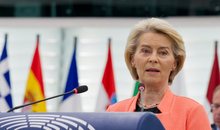
Ursula von der Leyen survives no-confidence vote
2025-07-10 14:04:27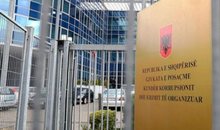


Fire in Lezha, flames near electrical substation
2025-07-10 13:32:24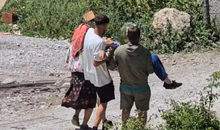
Residents clash with police in Theth, a woman faints
2025-07-10 13:24:38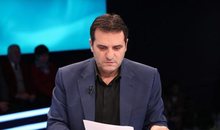
"Rama and Xanun"
2025-07-10 13:15:46

Zodiac signs most likely to get divorced in July 2025
2025-07-10 12:45:51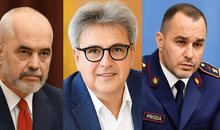
A scapegoat for an illegitimate Republic
2025-07-10 12:35:02
"He has devastated his own nation"/ Berisha: Rama imprisons his opponents!
2025-07-10 12:26:54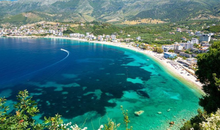

Albanian man injured with knife in Italy
2025-07-10 12:08:55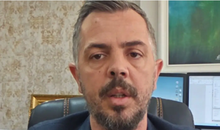
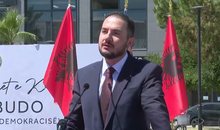


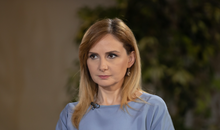


23-year-old in Mat drowned with rope, 4 suspects are being held
2025-07-10 10:58:53
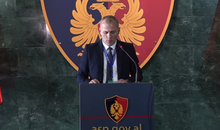
After the dismissals, the new director of the Shkodra Police is appointed
2025-07-10 10:30:10
BIRN: Rama's action for public spaces, a repeated spectacle
2025-07-10 10:29:11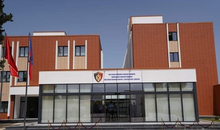
Action in Theth, Shkodra Police leaders dismissed
2025-07-10 10:16:28
Fatal accident on the Tirana-Durres highway
2025-07-10 10:01:58
The incinerator does not exist, but the government continues to increase funds
2025-07-10 09:51:45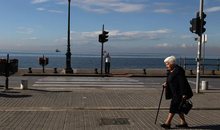
Albania is aging at a rapid pace! 30% of the population is over 60 years old
2025-07-10 09:46:23
End of an era, Modric says 'goodbye' to Real Madrid
2025-07-10 09:36:09
Mount Dukat has been on fire for 6 days, residents request air intervention
2025-07-10 09:27:24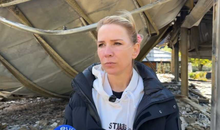

"Poverty on the rise"/ DW: Many people in Germany are not getting paid
2025-07-10 09:08:06
Horoscope, what do the stars have in store for you today?
2025-07-10 08:51:59


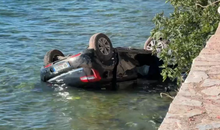

The scorching heat returns, the thermometer climbs to 40°C
2025-07-10 07:58:52
Morning Post/ In 2 lines: What mattered yesterday in Albania
2025-07-10 07:46:35
Tourist operator in Theth: They are demolishing our houses without warning
2025-07-09 22:54:57

Trump and Israeli commander warn: Gaza ceasefire could be near
2025-07-09 22:13:21
Fire in Elbasan Landfill, pedagogue: It is a cancer and environmental crime
2025-07-09 21:54:47
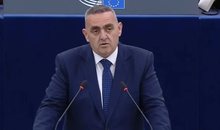

Dangerous summer, number of snake bites increases
2025-07-09 21:22:13
Berisha appeals again: Stop state terror against the residents of Theth!
2025-07-09 21:15:36
'Kissing disease' virus linked to several forms of cancer
2025-07-09 21:04:44
Malltezi confesses after release: Justice has become a political weapon
2025-07-09 20:51:48
Vokshi: Albania's EU integration has stalled due to lack of free elections
2025-07-09 20:37:21
